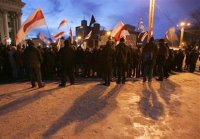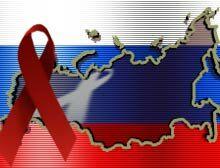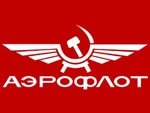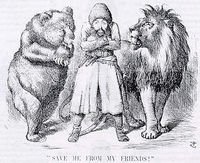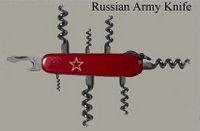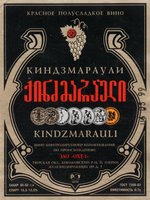 Families of the 1940 Katyn massacre victims have brought charges against Russia to the European Court of Human Rights, due to Moscow's denial to further investigate the soviet executions of some 22,000 Polish officers during WWII. Their demand is full Russian disclosure of the truth about the massacre. Katyn to this day remains a sore in Polish-Russian relations, and the subject of recurrent quarrels between Warzaw and Moscow. Now Katyn once more brings the two countries at loggerheads.
Families of the 1940 Katyn massacre victims have brought charges against Russia to the European Court of Human Rights, due to Moscow's denial to further investigate the soviet executions of some 22,000 Polish officers during WWII. Their demand is full Russian disclosure of the truth about the massacre. Katyn to this day remains a sore in Polish-Russian relations, and the subject of recurrent quarrels between Warzaw and Moscow. Now Katyn once more brings the two countries at loggerheads.Earlier this Spring, Russian president Putin condemned the soviet invasions of Hungary in 1956 and Czeckoslovakia in 1968, during official visits to Budapest and Prague. This display of statesmanship raised Polish expectations that Putin would be the man to eventually rid Russia of this sour grape in relations to Poland, by disclosure of all facts on Katyn. Instead, the Poles were once more let down, which now has made them bring matters to a head.
Moscow assumed responsibility for the Katyn massacre already in 1990, and initiated an investigation into the matter, which was concluded at the end of 2004. As documentation was to be handed over to Polish authorities earlier this year, it turned out that only half the papers would be available to the Poles. The rest was Russian "state secrets" - effectively classifying all records on the people that carried out the massacre. As a consequence, any chances for Poles to obtain justice in the case were eradicated.
As opportunities for legal redress by the Russian judicial system then were further explored, this was rebuffed by the Russian Chief Military Prosecutor. He claimed the case had been closed as there was no evidence of genocide in the Katyn killings, why the normal statute of limitation for murder had precluded any further investigation on the responsible for the killings. This really made things heat up.
 On March 6, Polish presidential spokesman, Maciej Lopinski, characterised the Russian statement as "shocking" while it failed to recognise Katyn as genocide - devaluing the massacre to simple homicide. For Poles, this was tantamount to a renewed Russian denial that those killed in Katyn were victims of Stalinist repression. The presidential spokesman concluded by stating that: "Truth on Katyn is paramount to our relations."
On March 6, Polish presidential spokesman, Maciej Lopinski, characterised the Russian statement as "shocking" while it failed to recognise Katyn as genocide - devaluing the massacre to simple homicide. For Poles, this was tantamount to a renewed Russian denial that those killed in Katyn were victims of Stalinist repression. The presidential spokesman concluded by stating that: "Truth on Katyn is paramount to our relations."The affair produced a public and political outcry in Poland. As the Polish parliament - the Sejm - commemorated the 65th anniversary of Katyn on 23 March, it passed a resolution demanding "that Russia recognize the 1940 Katyn massacre and publish the names of its surviving perpetrators." It further said that "only a full disclosure of the truth and a condemnation of the war criminals can lead to improved relations between Poland and Russia."
As little was heard from Moscow in response to this, 70 relatives of Katyn victims on Monday 24 April filed a law suit against the Russian state to the European Court of Human Rights. Even though the suit is obviously motivated by current circumstances, the plaintiffs are completely right in bringing the case to Strasbourg, as they now lack other means of legal redress. When the case eventually will be tried a few years from now, it will stir up even more commotion in relations between Warzaw and Moscow. In the meantime, little can be done to improve the situation, as Katyn once more has resurfaced as an outstanding issue.
As for Russia, this is yet another display of bad political judgement. Putin had an
 opportunity of the decade to demonstrate himself to the world as a true statesman by getting both the soviet invasions of Hungary and Czeckoslovakia, and the Katyn massacre off the agenda for all future. By failing to do the last, the impetus of the former was lost. Putin thus spoiled his chances of gaining a foreign policy triumph that would substantially have improved his tarnished image and authoritarian trackrecord in the eyes of the European public.
opportunity of the decade to demonstrate himself to the world as a true statesman by getting both the soviet invasions of Hungary and Czeckoslovakia, and the Katyn massacre off the agenda for all future. By failing to do the last, the impetus of the former was lost. Putin thus spoiled his chances of gaining a foreign policy triumph that would substantially have improved his tarnished image and authoritarian trackrecord in the eyes of the European public.In effect, the political value of Russia's condemnation of Hungary '56 and Czeckoslovakia '68 was nullified by overlooking Poland and Katyn. So little was demanded - so much could have been gained. Putin did not seize this opportunity, but let it slip through his fingers. One almost feels sorry for him for this enormous blunder. Was it really so hard to understand, that getting a clean slate in relations to Central Europe demanded 3 out of 3, and that 2 out of 3 would only add up to failure? If not being able to clear up the Katyn mess, Putin obviously should have waited with Budapest and Prague, until the time was ripe also to settle affairs with Warzaw. This was not the case, and one cannot help wondering why. For Putin, it could have become a historical moment of great symbolic significance - something people would have remembered him for. And still, Putin lost his chance. Why choose defeat when triumph is at hand?


 After a press conference in Minsk this morning, Belarus opposition leader and former presidential candidate Alyaksandr Milinkevich was arrested by Belarus police. The arrest was due to an "illegal" demonstration in Minsk on Wednesday to commemorate the 20th anniversary of the Chernobyl accident.
After a press conference in Minsk this morning, Belarus opposition leader and former presidential candidate Alyaksandr Milinkevich was arrested by Belarus police. The arrest was due to an "illegal" demonstration in Minsk on Wednesday to commemorate the 20th anniversary of the Chernobyl accident.